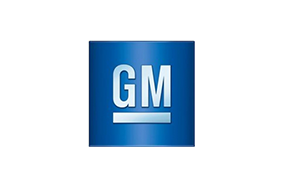GM Builds Vehicles and Biodiversity at Its Facilities
62 sites achieve Wildlife Habitat Council Conservation Certification
Published 11-03-16
Submitted by General Motors
 Sixty two GM sites achieve Wildlife Habitat Council Conservation Certification.
Sixty two GM sites achieve Wildlife Habitat Council Conservation Certification.General Motors is supporting the United Nations’ Sustainable Development Goal to halt biodiversity loss by developing wildlife habitats at its sites around the world. From helping protect honeybees with pollinator gardens or designating no-mow zones to grow grassland habitats, GM is demonstrating the role business can play in advancing sustainable ecosystems.
The company now has 62 sites that have achieved Conservation Certification from the Wildlife Habitat Council. GM is more than halfway to its commitment to achieve such certification at all its manufacturing sites worldwide by 2020.
GM’s newest habitats can be found at 16 sites from North and South America to Asia. Fifteen more sites earned recertification this year, showing continuous growth of their programs. These habitats provide a place for native flora and fauna to thrive, and serve as outdoor classrooms to engage communities on conservation.
"We have a responsibility to make our communities better wherever we do business," said Greg Martin, GM executive director for sustainability. "Good sustainable development is seeking more ways to use GM property to strengthen biodiversity. We also are teaching employees and community members about how they can impact their local ecosystems.”
GM designed its new habitats to restore, protect and promote biodiversity. In total, the company now manages nearly 5,000 acres of habitat in 13 countries.
Restore:
Edmonton Parts Distribution Centre in Canada — Created brush piles from scrap branches and twigs to serve as dens for coyotes and small mammals.
Toluca Complex in Mexico — Planted 13,290 trees in the Sierra Morelos National Park with the help of 1,250 employees and their families.
Rayong Engine in Thailand — Planted 300 mangrove trees and taught students about the critical role of mangroves in protecting coastlines.
Protect:
Flint Tool & Die in Michigan — Created a tall nesting platform as a safe place for osprey and swallows to rest and roost.
Boryeong Complex in South Korea — Developed pollinator gardens containing more than 4,000 plants and 29 species.
San Luis Potosi in Mexico — Built 30 birdhouses from recycled material and studied how resident and migratory birds use the habitat throughout the site.
Promote:
Talegaon Complex in India — Used habitat to educate 669 community members on ozone protection and importance of river and land conservation.
Edmonton Parts Distribution Centre in Canada — Took students on inflatable rafts doubling as floating laboratories to discover information about the North Saskatchewan River’s health.
Wildlife Habitat Council promotes and certifies habitat conservation and management on corporate lands through partnerships and education. WHC Conservation Certification programs take corporate sustainability goals and objectives and translate them into tangible and measurable on-the-ground actions.
For more information on GM’s environmental commitment, visit its sustainability report and environmental blog.
General Motors Co. (NYSE:GM, TSX: GMM) and its partners produce vehicles in 30 countries, and the company has leadership positions in the world's largest and fastest-growing automotive markets. GM, its subsidiaries and joint venture entities sell vehicles under the Chevrolet, Cadillac, Baojun, Buick, GMC, Holden, Jiefang, Opel, Vauxhall and Wuling brands. More information on the company and its subsidiaries, including OnStar, a global leader in vehicle safety, security and information services, can be found at http://www.gm.com.

General Motors
General Motors
General Motors Corp. (NYSE: GM), the world's largest automaker, has been the global industry sales leader for 75 years. Founded in 1908, GM today employs about 327,000 people around the world. With global headquarters in Detroit, GM manufactures its cars and trucks in 33 countries. In 2005, 9.17 million GM cars and trucks were sold globally under the following brands: Buick, Cadillac, Chevrolet, GMC, GM Daewoo, Holden, HUMMER, Opel, Pontiac, Saab, Saturn and Vauxhall.
More from General Motors

